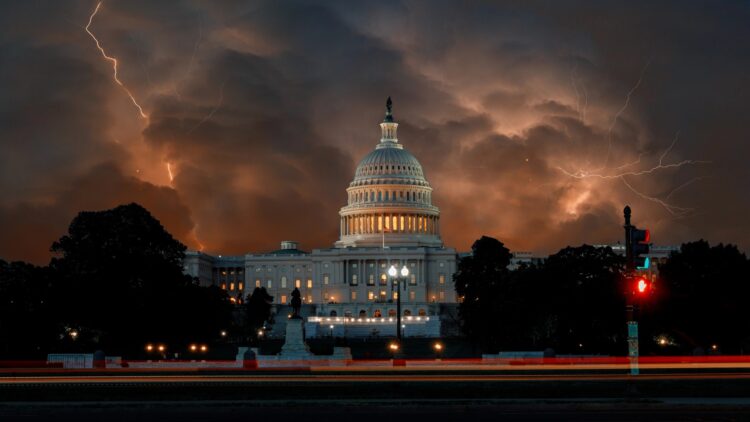The plug of climate oversight was pulled by federal financial regulators who dissolved two committees that had spent years following how global warming would disrupt the banking system of America, leaving environmental pressure groups with no idea about what will happen next to monitor climate risk in the financial industry.
Biden kills off climate committees of regulators
Reuters reported that financial regulators voted Wednesday to close two committees that were monitoring climate-linked financial risks and concluded the effort by Biden to ensure climate issues are integrated into financial regulation. The Financial Stability Oversight Council disbanded the Climate-Related Financial Risk Committee as well as its advisory equivalent.
It is a total reversal of the way things used to be under Biden. These panels were to determine whether climate change would cause chaos in companies, banks, and the financial system in general. Well, they are gone now, and it is pretty evident that the new administration has other things in mind regarding what the regulators should be paying attention to.
Oregon moves to defund the Obama-era climate
The committees did not emerge out of thin air, but were part of a greater effort that started under Biden to take climate risk in finance seriously. The theory was not that complex: when extreme weather and the shift to non-fossil fuels were about to harm the financial institutions, the regulators needed to understand those risks.
But it appears that it is no longer occurring. The decision shows the change of priorities of the regulators that can be as quick as the coming and the going of administrations. What had seemed to be settled policy under Biden is what is now being reversed, leaving the banks and other financial institutions to set climate risk by themselves.
For banks and climate policy, the implications of this are as follows
Getting rid of these committees is not bureaucratic housekeeping. It is providing a resounding signal of the fact that federal regulating bodies are no longer going to put the necks of banks into the noose when it comes to climate risks. Biden’s financial institutions were preparing new financial rules on climate risk disclosure and disruption contingency due to weather. The committees had been working on structures to guide the banks to consider all the factors, which included the losses incurred by hurricanes and the financial impact of not producing oil and gas.
The industry was left to deal with climate risks on its own
Banks had been preparing to face tighter climate regulation, employing new experts and creating new risk management techniques. At this point, they are in a state of uncertainty as to whether federal regulators will demand climate disclosures or simply leave it in the hands of individual institutions. Some organizations, such as Public Citizen, have been advocating tougher regulations around climate risks by claiming that financial institutions require federal direction in order to adequately evaluate threats to the environment.
The absence of these committees made it much harder to do such advocacy work. This is a source of uncertainty to financial institutions. There is no standard practice of including climate risks in the planning of some banks, although, with the lack of federal guidance, some banks have already begun to include climate risks in their planning. Some may reduce their commitment to climate risk management to zero on the assumption that the regulatory burden is taken off.
The relocation leaves the financial system of America without a coordinated federal response to climate risks at a time when extreme weather occurrences are increasing in frequency and cost. The question of whether that counts or not is a matter of opinion, but one thing is clear: the climate-finance regulatory environment has just become considerably less predictable.


